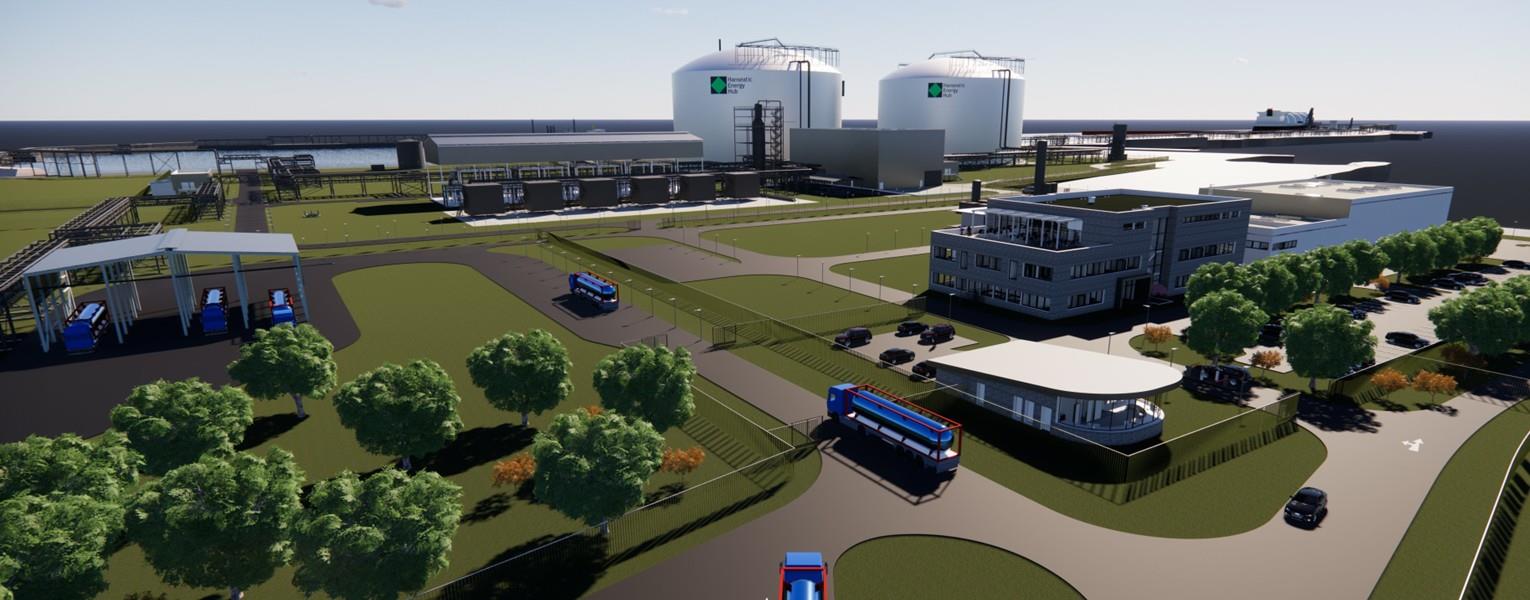German energy firm EnBW has booked more long-term capacity at Hanseatic Energy Hub’s planned Stade LNG import terminal in Germany.
In December last year, EnBW took 3 Bcm of capacity. The firm has now decided to double the booking to 6 Bcm, according to a joint statement.
All bookings include the option to move to ammonia as a hydrogen-based energy source at a later date.
Most of capacity booked
Johann Killinger, managing director and co-shareholder of HEH, said in the statement that most of the terminal’s capacity is now booked on a long-term basis.
“With this, important commercial groundwork has been laid for the project implementation,” he said.
Besides EnBW, Germany’s SEFE plans to import at least 4 bcm per year via the terminal, starting in 2027.
Also, HEH recently awarded the EPC deal for its terminal near Hamburg to a consortium led by Spain’s Tecnicas Reunidas.
According to HEH, the consortium consisting of Fluxys, Dow, Partners Group, and Buss Group plans to take FID to build the terminal with a regasification capacity of 13.3 Bcm per year in summer 2023.
FSRU
Prior to the launch of the onshore LNG import terminal, Stade will welcome its first FSRU as part of Germany’s plans to boost energy security and replace natural gas pipeline imports from Russia.
HEH expects the completion of the new LNG jetty in Stade by the end of 2023.
Also, German port firm Niedersachsen Ports (NPorts) is responsible for planning and implementation of the new jetty and officially started building the new infrastructure on January 20.
Following completion, the jetty will welcome the 170,000-cbm FSRU Transgas Force, owned by Dynagas, in winter 2023/2024.

